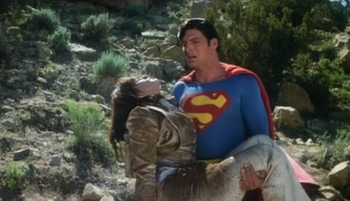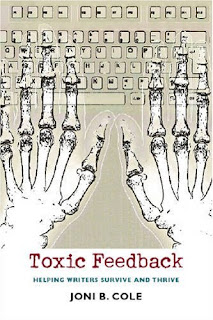The Academy of Motion Picture Arts and Sciences announced its nominees this morning for the 88th annual Academy Awards. Here's a look at their picks for their two screenwriting categories.
BEST ADAPTED SCREENPLAY
THE BIG SHORT
Logline: Four outsiders in the world of high finance predict the credit and housing bubble collapse of 2007 and bet everything they have against big banks in hopes of making a fortune.
Screenplay by
Adam McKay (
Anchorman,
Ant-Man,
SNL) and
Charles Randolph (
Love & Other Drugs), based on the
book by Michael Lewis.
Other nominations: Best Picture, Director (McKay), Supporting Actor (Christian Bale), Editing.
BROOKLYN
Logline: In 1952, a young Irish woman immigrates to Brooklyn and finds romance, but when a family emergency forces her to return to Ireland, she must choose between two lives and two homes.
Screenplay by
Nick Hornby (
About a Boy,
Wild), based on the
novel by Colm Tóibín.
Other nominations: Best Picture, Actress (Saoirse Ronan). Hornby was previously nominated for adapting
An Education (2009).
CAROL
Logline: In 1952, a young Manhattan shopgirl stuck in an unhappy engagement begins an affair with a married woman going through a difficult divorce.
Screenplay by
Phyllis Nagy (
Mrs. Harris), based on
the novel The Price of Salt by Patricia Highsmith (
Strangers on a Train). Directed by Todd Haynes (
Far From Heaven).
Other nominations: Best Actress (Cate Blanchette), Supporting Actress (Rooney Mara), Cinematography, Costumes, Score. Previously, Anthony Minghella was nominated in 1999 for adapting Highsmith's
The Talented Mr. Ripley.
THE MARTIAN
Logline:
Apollo 13 meets
Cast Away, on Mars.
Screenplay by
Drew Goddard (
Buffy the Vampire Slayer,
Lost,
Cabin in the Woods,
World War Z), based on the self-published
novel by Andy Weir.
Other nominations: Best Picture, Actor (Matt Damon), Production Design, Sound Mixing, Sound Editing, Visual Effects. The space survival drama previously won two Golden Globes for Best Picture - Comedy or Musical, and Best Actor in a Comedy or Musical.
ROOM
Logline: An abducted woman and her five-year-old son, fathered by her captor, escape and struggle to adjust to life outside the room in which they were held captive for seven years.
Screenplay by
Emma Donoghue, based on
her debut novel. Directed by Lenny Abrahamson.
Other nominations: Best Picture, Actress (Brie Larson), Director.
SOURCE MATERIAL BREAKDOWN: This year, four of the five adapted screenplays nominated are based on novels. The fifth is based on a true story (sourced from a non-fiction book). Last year, three were true stories/non-fiction books, one was a novel, and one was actually an original screenplay but was considered adapted from a short film made as a demo to raise funds for the feature. In 2014, four of the adapted screenplays nominated were non-fiction, while the fifth nominee was a sequel (based on characters from its predecessors).
SURPRISING OMISSIONS: The writers branch failed to recognize
TRUMBO, the true story of Hollywood's highest paid screenwriter in the late 1940s who was blacklisted but continued to write under pseudonyms and still managed to win two Academy Awards. Also missing from the list is surprising box office disappointment
STEVE JOBS, one of the most uniquely structured biopics since
I'm Not There (2007). Equally shocking is the snub for Ridley Scott (
The Martian) in the directing category.
BEST ORIGINAL SCREENPLAY
BRIDGE OF SPIES
Logline: In 1960, a lawyer must negotiate the release of a pilot whose U-2 spy plane was shot down over the Soviet Union in exchange for a captive Soviet spy held by the U.S.
Screenplay by
Matt Charman (
Suite Française) and the
Coen Brothers. Directed by Steven Spielberg.
Other nominations: Best Picture, Supporting Actor (Mark Rylance), Production Design, Score, Sound Mixing. The Coens previously won twice for their screenplays
Fargo (original) and
No Country For Old Men (adapted).
EX MACHINA
Logline: When a young programmer is challenged to test a beautiful new android for self awareness, humanity is in danger of being overtaken by artificial intelligence.
Written and directed by
Alex Garland (
28 Days Later).
Other nominations: Best Visual Effects.
INSIDE OUT
Logline: Inside the mind of a young girl, her emotions—Joy, Fear, Anger, Disgust, and Sadness—must work together to find a way to help her cope with the trauma of moving to a new city and school.
Screenplay by
Pete Docter (
Toy Story 2),
Meg LaFauve (
The Good Dinosaur),
Josh Cooley (
Toy Story 4). Directed by Docter. Co-story and co-directed by
Ronnie Del Carmen. Directed by Docter.
Other nominations: Best Animated Feature, for which it previously won the Golden Globe. Docter previously won in that same category for
Up and was nominated for the screenplays for
Up (shared with Tom McCarthy, his competition in this category this year),
WALL-E, and
Toy Story.
SPOTLIGHT
Logline: An elite team of investigative reporters uncovers a massive child molestation scandal and cover-up within Boston's Catholic Archdiocese.
Screenplay by
Tom McCarthy (
The Station Agent,
The Visitor) &
Josh Singer (
The Fifth Estate). Directed by McCarthy.
Other nominations: Best Picture, Director, Supporting Actor (Mark Ruffalo), Supporting Actress (Rachel McAdams), Editing. McCarthy was previously nominated for his contribution to the screenplay
Up, a nomination he shared with his competition this year, Peter Docter.
STRAIGHT OUTTA COMPTON
Logline: In the mid-1980s, a rap group from Compton achieves stardom and revolutionizes hip-hop culture with their music, but in-fighting over money tears the band apart.
Screenplay by
Jonathan Herman (first produced credit),
Andrea Berloff (
World Trade Center). Story by Berloff,
S. Leigh Savidge (first feature writing credit),
Alan Wenkus (
Private Resort).
Other nominations: None.
ANALYSIS: While true stories mostly took an unusual hiatus in the adapted category, three of the original screenplay honorees are based on real-life events, leaving room for only two original stories on the list.
SURPRISING OMISSIONS: After a winning streak in the category for his last two screenplays, Quentin Tarantino sits out this year not only in the screenplay race, but is also out of luck in Best Picture and Best Director, with
THE HATEFUL EIGHT nabbing only three nominations (Best Supporting Actress - Jennifer Jason-Leigh, Best Cinematography, and Best Score). Also surprisingly sidelined in the directing race is Steven Spielberg (
Bridge of Spies).
WGA COMPARISON: Three of the Oscar-nominated screenplays in each category were also nominated for WGA awards. The four that weren't (
Brooklyn,
Carol,
Ex Machina, and
Inside Out) were all ineligible for WGA awards. Instead, the WGA went with
Sicario and
Trainwreck (original) and
Steve Jobs and
Trumbo (adapted).
ADAPTATIONS VS. ORIGINALS: Overall, the Academy favored adaptations over movies based on original material written directly for the screen. Five and a half of the eight Best Picture nominations were for adaptations (
The Reverenant's screenplay, which was not nominated, was credited as being based "in part" on a novel, which was also inspired by a true story). Four of the five films nominated for Best Adapted Screenplay were also nominated for Best Picture. The only two Best Picture nominees coming from original scripts also saw those original scripts nominated, both of which were based on true stories.
Which screenplays will, or should, win? Which should (or should not) have been nominated? Leave a comment.
The Academy Awards will be presented on February 28, 2016.















